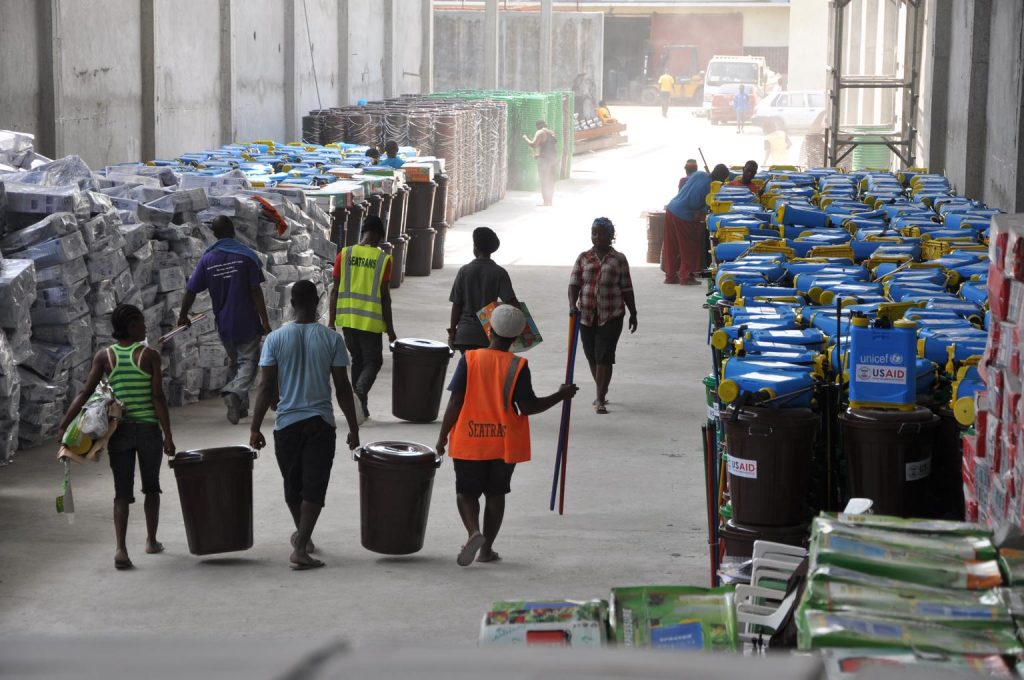Regional and global disease epidemics, which followed in the wake of the First World War, became the crucial tipping point in the balance between resistance and accommodation that had been established between the British colonial administration and newly colonized people of the Sierra Leone Protectorate. From 1915 to 1919, a smallpox epidemic and the global influenza epidemic overwhelmed the inhabitants of the northern region of Sierra Leone, severely disrupting the movement of people, agricultural production, and trade. In the wake of these epidemics and social disruptions, British colonial demands for revenue, labour, and food from Sierra Leoneans to support their European war effort became more onerous. By 1919, the surreptitious protests of the pre-war period had given way to open and violent confrontation, as anti-Syrian and rice riots swept through the urban areas of the protectorate and colony.
Resource
Epidemics and Resistance in Colonial Sierra Leone during the First World War

UNICEF/UNI178619/Ratnam
On 28 January, workers carry large buckets and other items that are part of school infection prevention and control (IPC) kits, in a warehouse in Monrovia, the capital. The logos of UNICEF and USAID (the United States Agency for International Development) which helped fund the kits are visible on some of the buckets and other items. The kits also contain buckets with faucets, rubber gloves and rubber boots, thermal guns, chlorine and chlorine sprayers, soap, brooms and other items for schools to implement the strict safety protocols that have been developed for the resumption of classes in the context of the Ebola outbreak. UNICEF has procured and is packaging and dispatching more than 7,000 IPC kits to over 4,000 schools in the country. Liberia, with Guinea and Sierra Leone, continues to experience widespread and intense EVD transmission.
In late January/early February 2015 in Liberia, as schools prepare to reopen, UNICEF and partners are helping reduce as much as possible the risk of Ebola virus disease (EVD) transmission. Support includes training teachers to implement safety measures, such as daily temperature screenings, and supplying thermometers and hand-washing kits for schools. Because of EVD, public schools in Guinea, Liberia and Sierra Leone remained closed after the JulyAugust break, depriving 5 million children of months of education. Amid continued school closures in Liberia and Sierra Leone, UNICEF is working with governments and communities to prepare for their eventual reopening. Schools are scheduled to reopen in Liberia on 16 February.
Related content
Infographics
Key Considerations: Child Engagement in the Context of Disease Outbreaks in Eastern and Southern Africa
This infographic summarises the insights from a recent key considerations brief on child engagement in the context of disease outbreaks in Eastern and Southern Africa. This brief explores why, when and how to engage children in the prevention, response and…
Central and East Africa Hub
SSHAP
2024
Infographics
Key Considerations for Responding to Floods in South Sudan Through the Humanitarian-Peace-Development Nexus
This infographic summarises the insights from a recent key considerations brief on responding to floods in South Sudan through the lens of Humanitarian-Peace-Development (HDP) Nexus. The brief describes the multidimensional impacts of flooding on peace, health, livelihoods and governance and…
Central and East Africa Hub
SSHAP
2024
Briefing
Key Considerations: Child Engagement in the Context of Disease Outbreaks in Eastern and Southern Africa
Effective child engagement strategies are essential to optimise the response to disease outbreaks and minimise their impact while ensuring children’s protection, well-being and resilience. When children understand disease outbreaks, they are better able to cope, contribute and recover. This promotes…
Central and East Africa Hub
SSHAP
2024
Briefing
Key Considerations for Responding to Floods in South Sudan Through the Humanitarian-Peace-Development Nexus
In common with many other African countries, the Republic of South Sudan is increasingly experiencing devastating floods linked to climate change.1,2 The Indian Ocean Dipole (IOD) and El Niño regulate the climate of Equatorial Eastern Africa. In 2019, a dipole…
Central and East Africa Hub
SSHAP
2024


